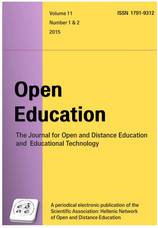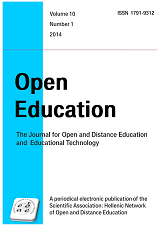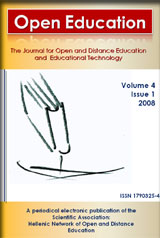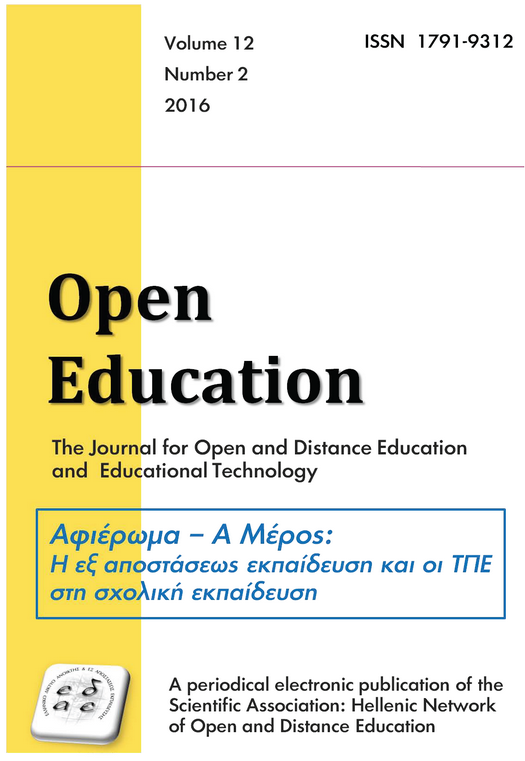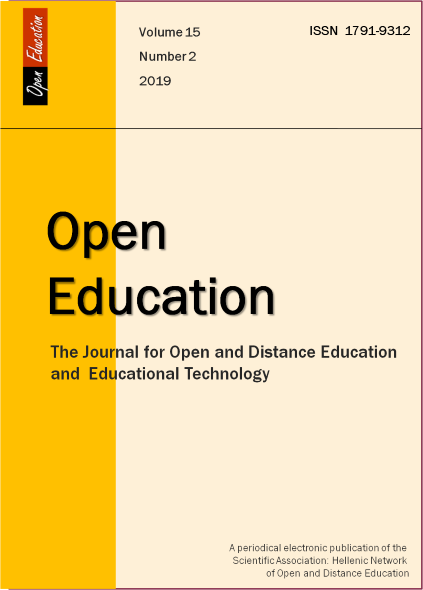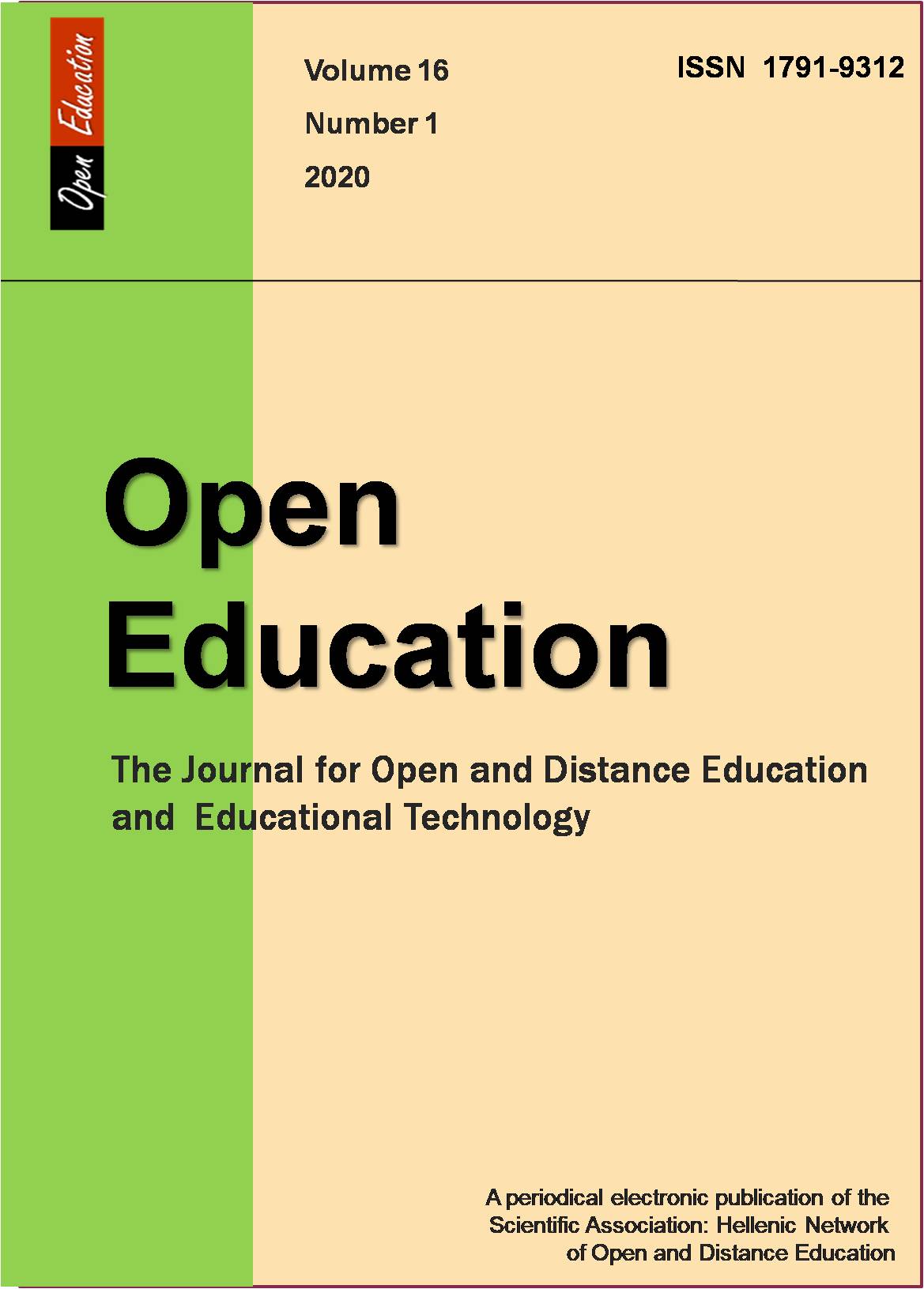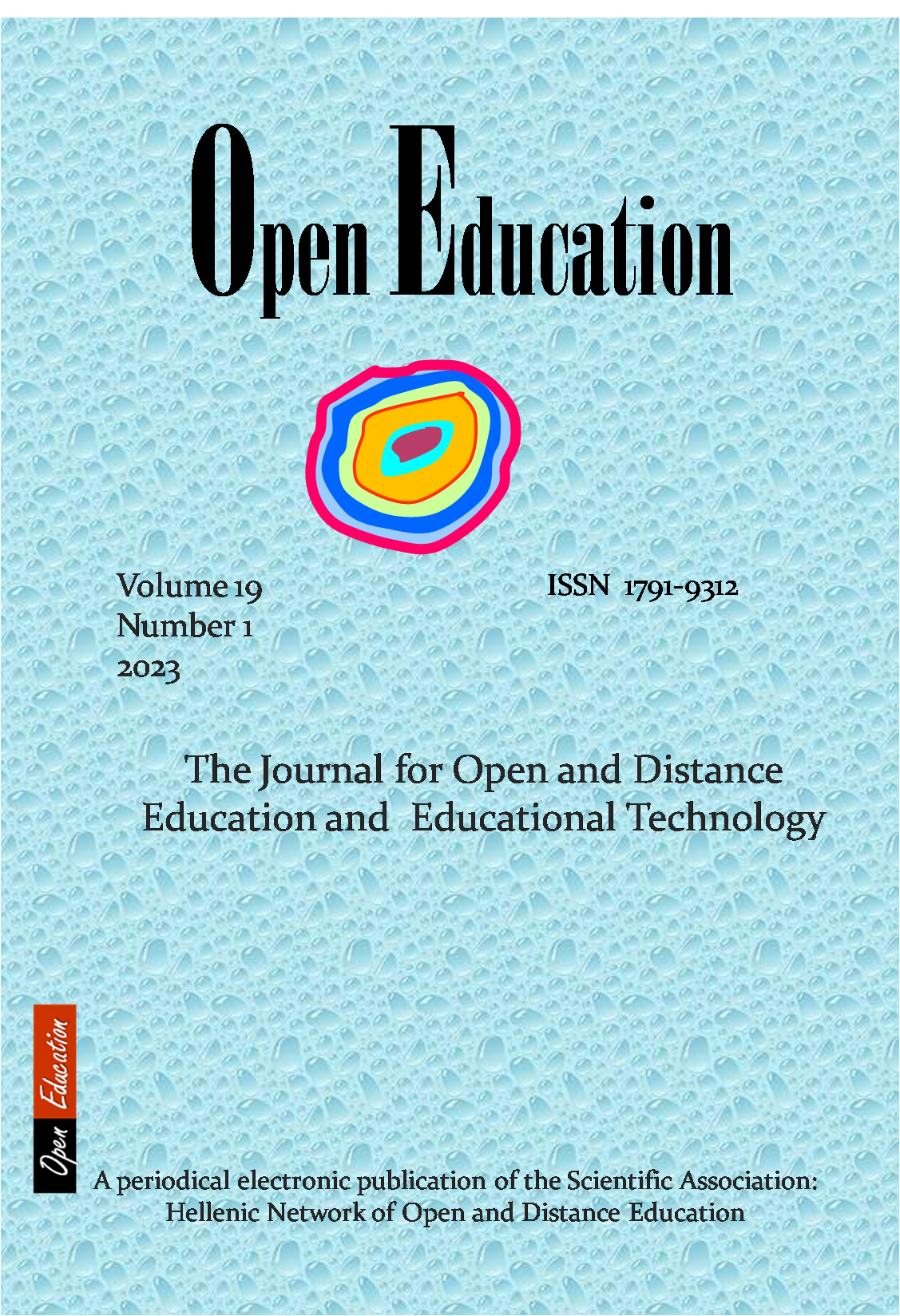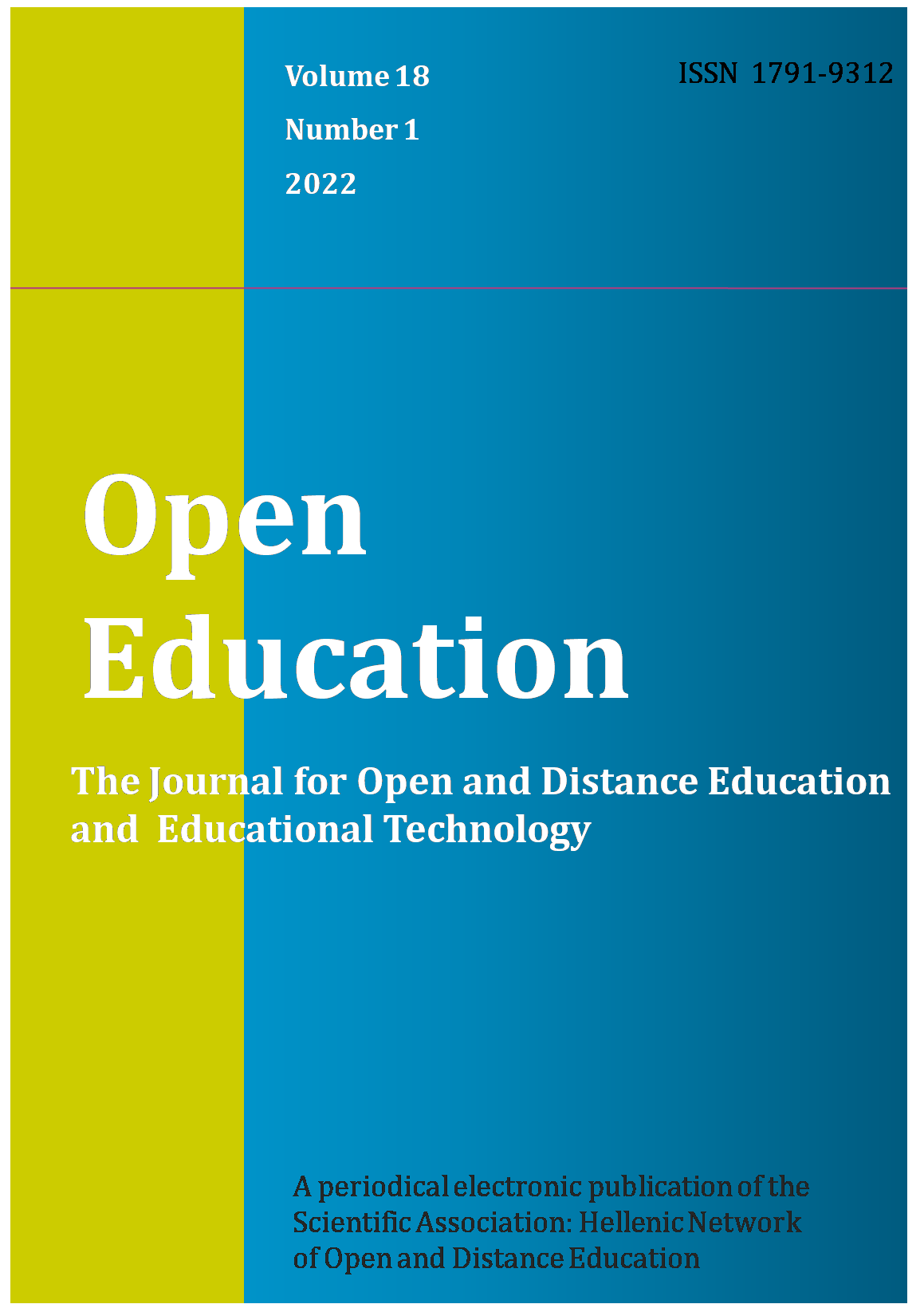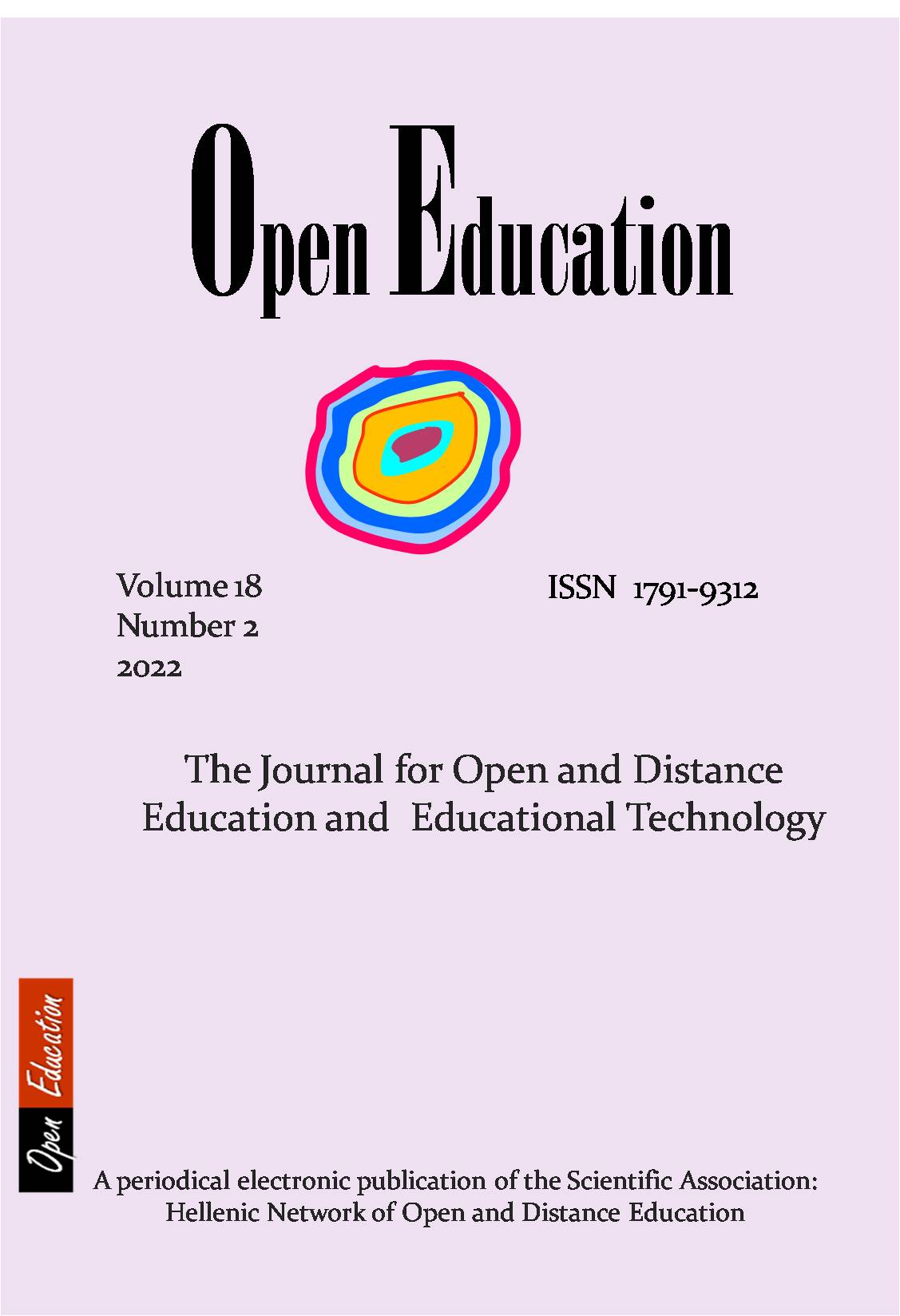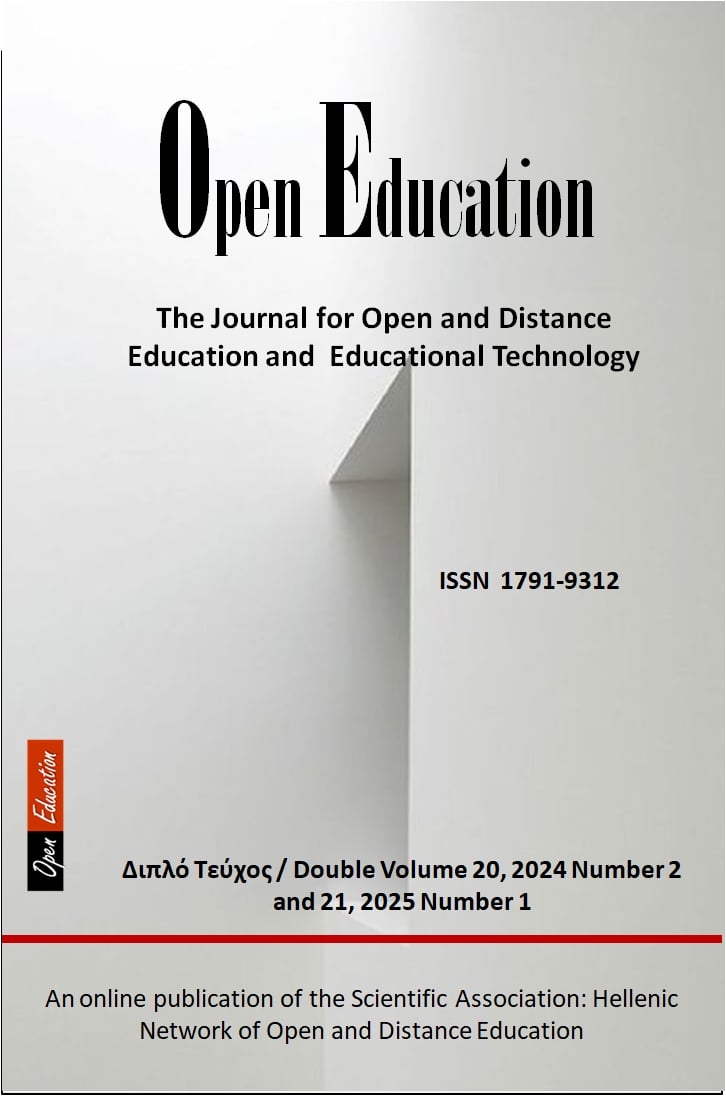Περίληψη
This paper focuses on the investigation of the character of the two pillars of modern university education in Greece: the conventional and distance education. The investigation is based on a literature review of the historical and ideological evolution and seeks to provide a comparative consideration, exploring the possibilities of harmonization and complementarily, with a view to upgrade the quality of tertiary education in Greece in the 21th century. The paper presents the problems of higher education in Greece and the answers proposed by the new form of distance education, online education, which catalyzes the spatio temporal constraints and provides a more flexible and creative educational policy ambition. Distance education can override conservatism and structural rigidity of modern universities and may contribute in improving the effectiveness of tertiary education in Greece, especially in a period characterized by financial and social distress and fast depreciation of knowledge. The paper also points out the obstacles associated with the use of e-learning and its integration in educational practice, and proposes creative ways of integrating the two
forms of education in tertiary institutions.
